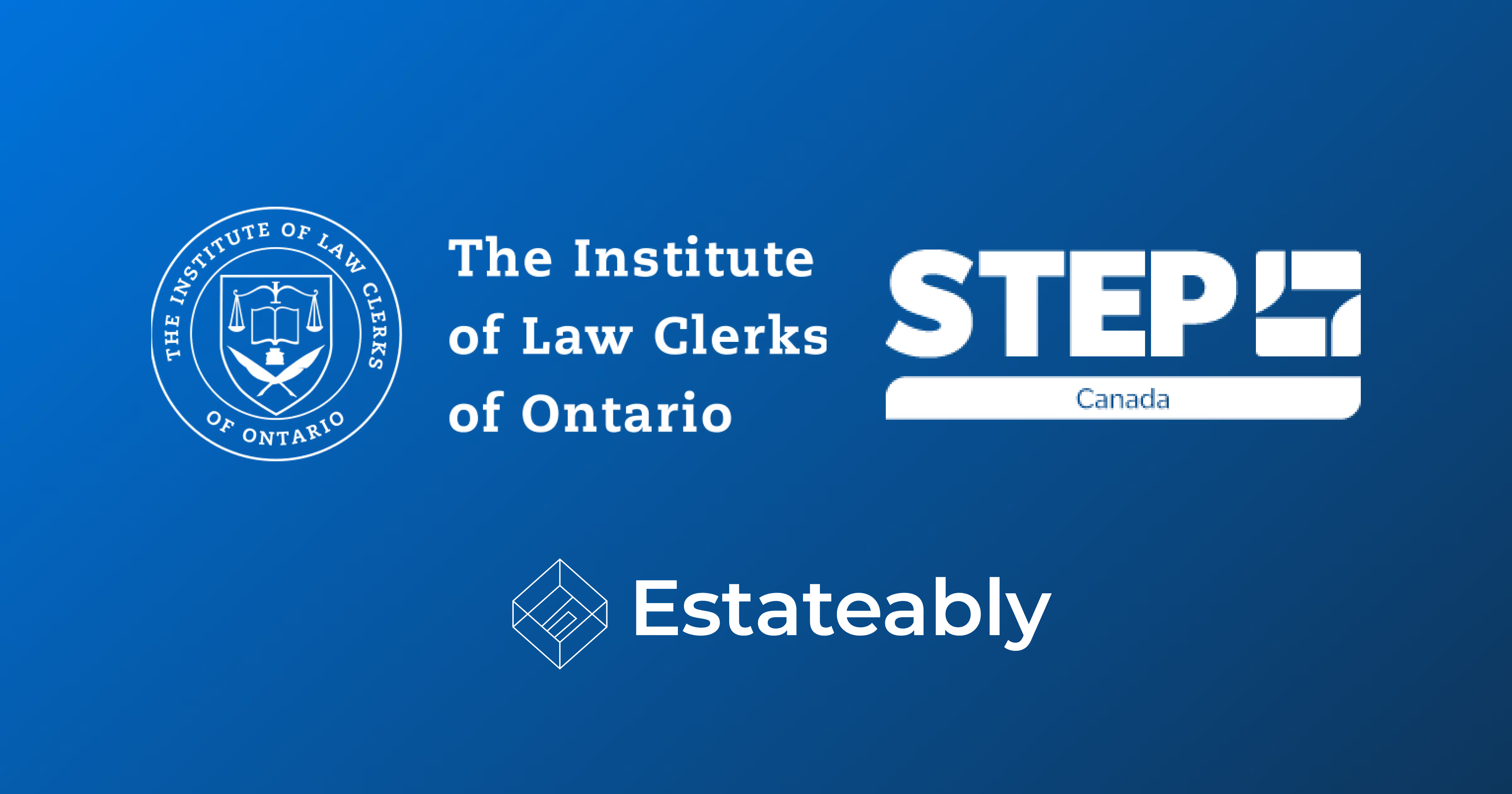

What Is Step Canada And The Tep Designation?

If you work in the estate administration and planning field, you've likely heard of STEP Canada and the TEP Designation. STEP stands for the Society of Trust and Estate Practitioners, while the TEP Designation stands for the Trust and Estate Practitioner Designation.
In this article, we discuss STEP Canada and the TEP designation in-depth and how it may be helpful to your law firm or estate administration practice. We also discuss alternative trust and estate certifications and courses to boost your understanding of the field.
STEP Canada and TEP
STEP is an international professional body with over 22,000 members in 80 jurisdictions worldwide. It sets standards for lawyers, accountants, financial advisors, and other trust and estate professionals and further provides networking opportunities, training and education, and more.
STEP has three levels of membership
- Affiliate and Associate: Affiliates are generally entry-level members, while Associates are mid-level members. These estate practitioners are working towards the requisite qualifications for a full STEP membership.
- Full Member: Full members are individuals with the TEP designation.
STEP's regular lectures and seminars on trust and estate topics are run by the top practitioners in the field. This network of practitioners also allows you to exchange academic articles and papers with some of the best. This way, you can garner feedback on the articles you write and learn about leading trends in estate administration, planning, and trusts which others are writing about.
Being part of STEP Canada is an asset to your business' client development. Potential clients may check the STEP directory to find a member that can aid in their trust and estate planning needs. Many estate practitioners may further advertise their practice as part of the organization to boast their specialized knowledge in trusts and estates.
TEP Designation
STEP Canada provides the TEP Designation to full members of the group. There are three paths to earn the designation:
- Expertise: For professionally qualified individuals with a minimum of ten years of senior experience in trusts and estates. This person must provide four referees to prove their advanced expertise in the trust and/or estate planning and administration field.
- Essay: For professionally qualified individuals with a minimum of five years of post-qualification experience in the trust and/or estate planning and administration field. This person must complete three essays in their first four years of joining STEP Canada.
- Exam: For candidates who work or aspire to work in the trust and/or estate planning and administration field. This path doesn't require any prior experience or professional qualifications.
The TEP Designation is internationally recognized and holds prestige within the trusts and estates community.
The designation assures clients that you understand trusts and estates at one of the peak levels. This installation of confidence to those who seek your service ultimately improves client relationships and puts your practice at the forefront of estate administration and planning demand.
TEP further improves your network with global professionals. STEP has a worldwide network of over 22,000 trust and estate practitioners, allowing you to seek help or advice from those worldwide.
TEP Designation Examination
The TEP program consists of four self-study courses delivered online. Each course also has an online examination component. You have four years between joining STEP as an entry-level affiliate to complete the exam program. It's recommended to have at least 120 hours of study time before each exam.
Courses are also available in French with tailoring to Civil Law for those in Quebec.
After completing the exam program, you additionally need at least two years of experience in trusts and estates (where at least 50% of your work is in trusts and estates) to qualify for the TEP designation.
Other trusts and estates certifications
Joining STEP and acquiring the TEP designation aren't the only ways to better your understanding of estate planning, estate administration, and trusts. There are other programs and courses to look at:
Certificate in Estate and Trust Administration
The Certificate in Estate and Trust Administration (CETA) is another course provided by STEP Canada. It's designed to enhance the knowledge and performance of estate administrators, trust officers, retail bankers, law clerks, paralegals, and more.
The certificate consists of three self-study courses and one cumulative exam. Although this certificate doesn't lead to the TEP designation, some candidates may use it to prepare for the TEP exam program.
ILCO Associate Program in Estates
The Institute of Law Clerks of Ontario also provides courses relating to estates. Their course helps law clerks better understand the preparation of wills, powers of attorney, and estates administration. It's a terrific way to upskill any law clerk's estates knowledge.
STEP Canada and the TEP Designation are valuable resources to any professional practicing in estate administration and planning. Not only is TEP a prestigious internationally recognized designation, but STEP provides many resources to better your understanding of the trust and estate field.
Want to see how Estateably can save you and your practice hours by automating forms, precedents, and accounting? Book a 40-minute demo here or get started!
More Articles









.avif)

